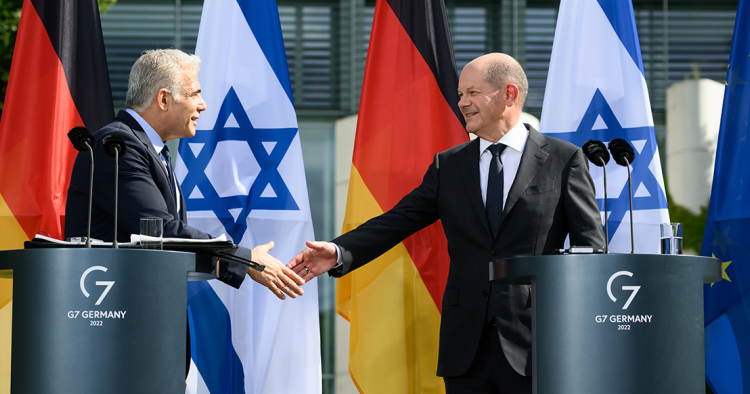A year ago, in February 2022, Chancellor Scholz delivered a policy statement in the Bundestag, as a response to the Russian invasion of Ukraine. He spoke about a watershed moment, which requires Germany to stand on the right side of history, and specified new elements of Germany's security and foreign policies. In Germany, this was coined a Zeitenwende, a sea change, and perceived as a major development. In Israel, though, it generally went unnoticed.
Germany is Israel's second most important global ally, after the United States, and is committed to Israel's security and well-being, as well as to supporting a two-state solution to the Israeli-Palestinian conflict. When then Prime Minister Lapid visited Scholz in Berlin in September 2022, the Chancellor stressed that Germany "will always stand by Israel" and that "Germany and Israel were the closest of allies, strategic partners and friends". Scholz reiterated this message when congratulating Netanyahu on his November 2022 election victory. In their phone conversation, Scholz emphasized that "Germany would remain a close partner to Israel and would continue to work for peace in the Middle East".
One would expect that, when such an important partner of Israel is at a key turning point, this will have ramifications. Especially, at a time in which Israel itself is transitioning under Netanyahu's new government – away from democracy, further away from peace. In practice, however, business continues almost as usual.
Continue reading on Friedrich-Ebert-Stiftung
Photo by Bernd von Jutrczenka/picture alliance via Getty Images
The Middle East Institute (MEI) is an independent, non-partisan, non-for-profit, educational organization. It does not engage in advocacy and its scholars’ opinions are their own. MEI welcomes financial donations, but retains sole editorial control over its work and its publications reflect only the authors’ views. For a listing of MEI donors, please click here.













